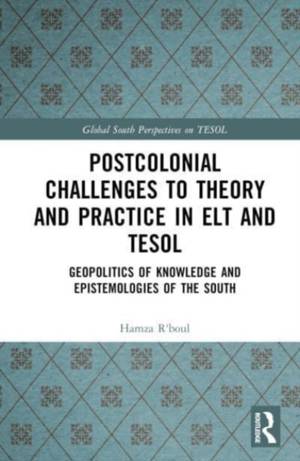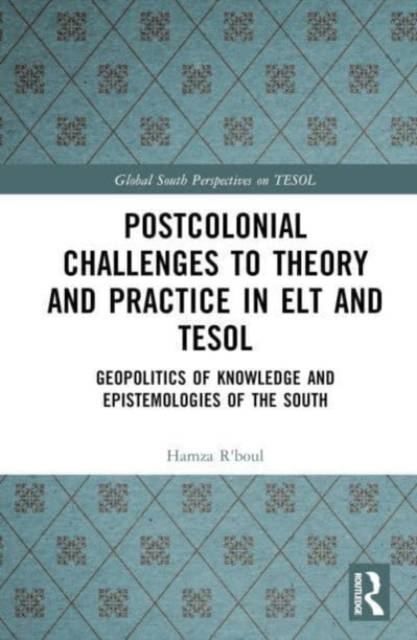
- Retrait gratuit dans votre magasin Club
- 7.000.000 titres dans notre catalogue
- Payer en toute sécurité
- Toujours un magasin près de chez vous
- Retrait gratuit dans votre magasin Club
- 7.000.0000 titres dans notre catalogue
- Payer en toute sécurité
- Toujours un magasin près de chez vous
Postcolonial Challenges to Theory and Practice in ELT and TESOL
Geopolitics of Knowledge and Epistemologies of the South
Hamza R'BoulDescription
Drawing on the underrepresentation of the Global South in global knowledge production with a focus on the existing inequalities, the book highlights the importance of postcolonial narratives within Global Southern epistemologies in English language teaching (ELT) and Teaching English to Speakers of Other Languages (TESOL).
Chapters consider the epistemological landscapes of these fields, their dedication to English teaching and English-related topics, and the intersection of the coloniality of language and the supremacy of English worldwide. The book explores the type of discussion that is needed to advance a more nuanced understanding of sociopolitical circumstances and how they shape our academic practices and theorizations of ELT and TESOL. In doing so, chapters examine the current geopolitics of knowledge that are found in journal publishing, citing how it favours the Global North, and further exploring ways of decolonizing language practices, teaching approaches and research cultures.
Calling for greater visibility and recognition of Southern ways of knowing within ELT and TESOL practice and research, the book will be an essential reading for scholars, researchers and students of TESOL, ELT, Applied Linguistics and multilingualism.
Spécifications
Parties prenantes
- Auteur(s) :
- Editeur:
Contenu
- Nombre de pages :
- 128
- Langue:
- Anglais
- Collection :
Caractéristiques
- EAN:
- 9781032334479
- Date de parution :
- 11-08-23
- Format:
- Livre relié
- Format numérique:
- Genaaid
- Dimensions :
- 156 mm x 234 mm
- Poids :
- 371 g

Les avis
Nous publions uniquement les avis qui respectent les conditions requises. Consultez nos conditions pour les avis.






